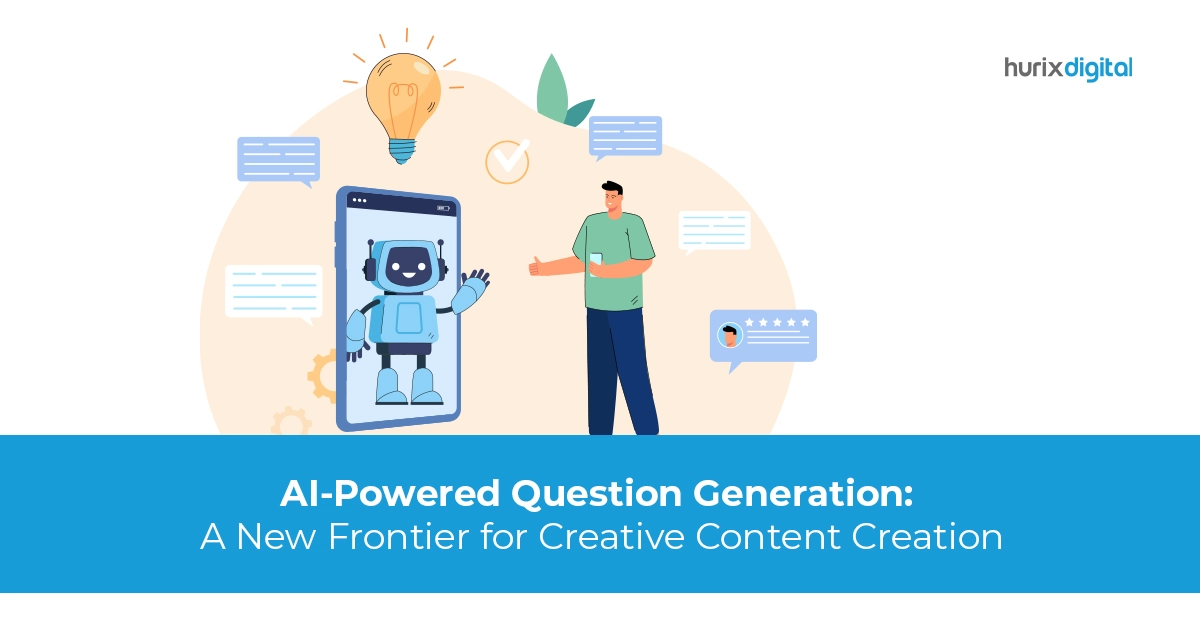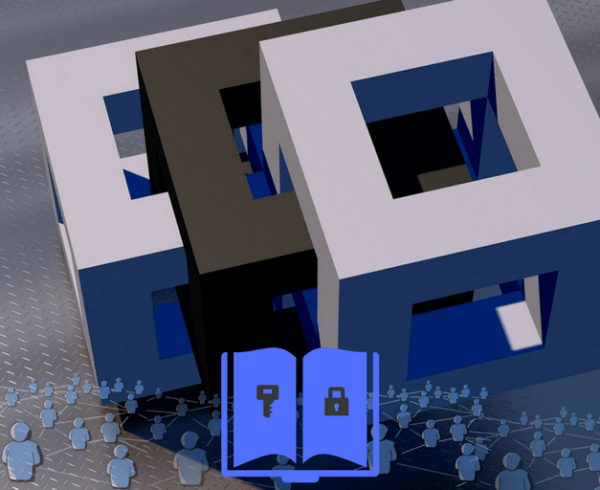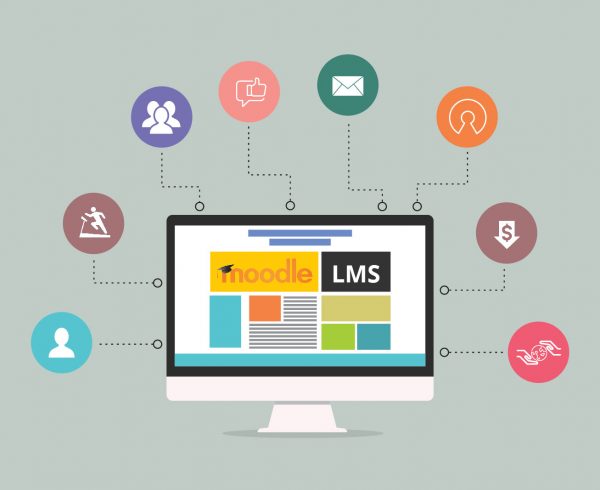Summary
This AI question generator tool is designed to generate questions based on a given content or context. The tool uses natural language processing techniques to analyze the text and generate queries.
In educational and training environments, questions serve as crucial elements that are fundamental to the learning and evaluation processes. They act as catalysts, sparking intellectual curiosity and prompting individuals to engage actively with the subject matter.
By requiring thoughtful responses, questions stimulate critical thinking skills, encouraging learners to analyze information, make connections, and form conclusions. Additionally, questions provide insights into how well learners grasp the material.
In this educational and training context, the emergence of AI-powered question generators introduces a transformative element. These advanced tools bring forth a multitude of advantages, from streamlining the question creation process to offering diverse question formats.
Let’s delve deeper into the nitty-gritty of AI question generator tools and how they empower educators and content creators through this blog.
Table of Contents:
- AI Question Generation Tool Basics 101
- How Does the AI Question Generator Empower Educators?
- How to Utilize AI Question Generators Creatively?
- Final Thoughts
AI Question Generation Tool Basics 101
An AI-powered question generation tool is an application that utilizes artificial intelligence (AI) techniques to create questions based on a given content or context automatically.
These tools are designed to assist educators, content creators, or anyone who needs to generate questions for assessment, quizzes, or learning purposes.
Here is the basic step-by-step process of how AI algorithms analyze text information and generate queries based on the text in no time.
1. Input Content for Question Generation
Users provide the tool with a piece of text, such as a passage, article, or set of documents. Some tools may also accept other types of input, such as images or audio, depending on their capabilities.
2. Text Analysis by the Tool
The tool uses natural language processing (NLP) to perform text analysis on the input content. NLP helps the AI understand the context, meaning, and relationships within the text.
The AI algorithm identifies key information, important concepts, and relevant details within the provided content.
3. Question Generation
Based on the analysis, the tool generates a set of questions related to the content. These questions can vary in complexity, ranging from simple recall questions to more complex analytical or inferential questions.
The tool may be programmed to create different types of questions, including multiple-choice, true/false, short-answer, or essay-style questions, depending on user preferences or requirements.
4. Adjustable Parameters
Some tools offer customizable parameters that allow users to adjust the difficulty level, question type, or other characteristics of the generated questions.
5. Feedback, Iteration, and Final Output
Users may receive feedback on the quality and relevance of the generated questions. Some tools allow for iteration, where users can refine or modify the generated questions based on their needs.
The final output is a set of questions that can be used for various purposes, such as testing, training, or enhancing understanding of the content.
Also Read: Transforming Education with Smart Classrooms: The Role of AI
How Does the AI Question Generator Empower Educators?
Generative AI tools can be valuable assets for content creators and in training scenarios for several reasons, like time efficiency and customization ability. However, if you are still skeptical about the potency of an AI question generator, then the following section might help you change your mind.
Here is how online question generator tools can save you time and empower you, whether you are a teacher, content creator, or trainer.
1. Enhances Educational and Training Content
Online test-maker tools can help enhance material by automatically generating relevant and engaging questions. Furthermore, teachers and trainers can create quizzes and exams more efficiently using the online quiz generator tool.
The tool will generate a diverse set of questions that cover various aspects of the material. These questions can be used to test the students’ understanding of the content or to prompt further exploration.
2. Time Efficiency
It is a no-brainer that creating a large number of questions manually can be time-consuming.
AI tools can significantly reduce the time and effort required to develop quizzes, homework assignments, or other assessment materials, as these tools possess the capability to simply generate questions from the text provided.
3. Adaptability and Customization
An AI question generator tool can adapt to the level of difficulty or complexity required. This allows content creators to tailor assessments to the proficiency levels of their students.
Furthermore, these tools can produce a wide variety of questions, ranging from multiple-choice to open-ended, enabling a more comprehensive assessment of learners’ understanding.
4. Consistency
One of the most promising aspects of using an online question generator tool is the consistency it offers.
By ensuring consistency in question formulation, these tools avoid inadvertent biases or inconsistencies that might arise from manual question creation. This is crucial for fair evaluations and assessments.
5. Personalized Learning
AI-generated questions can be used to create personalized learning experiences.
By analyzing the learner’s responses to questions, the system can adapt and provide additional material or resources tailored to the individual’s strengths and weaknesses.
6. Training Simulations
In professional training scenarios, AI-generated questions can be used to simulate real-world situations. This is particularly beneficial in fields like medicine, aviation, or emergency response, where practical experience is limited or high-stakes situations are involved.
The underlying algorithms in question generator AI tools often involve machine learning techniques, which are trained on large datasets of text to understand patterns and relationships between words, phrases, and concepts.
The goal is to make the question-generation process efficient, contextually relevant, and adaptable to different domains and subjects.
How to Utilize AI Question Generators Creatively?
As an educator or trainer, using an AI question generator tool creatively can enhance the learning experience for your students or trainees.
Here are some creative ways to fully utilize the potential of the best AI question generators in your practices:
1. Interactive Presentations
Integrate AI-generated questions into your presentations to make them more interactive. Use these questions to assess understanding, initiate discussions, or gather feedback in real time. This approach keeps your audience engaged and promotes active participation.
2. Gamified Learning
Turn the learning process into a game by incorporating AI-generated quizzes or trivia challenges. This not only makes the learning experience more enjoyable but also provides a competitive element that can boost motivation and retention.
3. Scenario-based Assessments
Create scenario-based questions that simulate real-world situations relevant to your subject matter. This approach helps learners apply theoretical knowledge to practical scenarios, fostering critical thinking and problem-solving skills.
4. Adaptive Learning Paths
Use AI-generated questions to assess the proficiency of learners and adapt the learning path accordingly.
Based on their responses, the tool can generate more challenging questions for advanced learners or offer additional support for those who need it, providing a personalized learning experience.
5. Flipped Classroom Activities
Incorporate AI-generated questions as pre-class or post-class activities in a flipped classroom model.
This encourages students to engage with the material outside of class, allowing in-class time to be more focused on discussions, problem-solving, or hands-on activities.
Also Read: Revolutionizing Education: Exploring the Latest AI-Powered Content Creation Tools for Educators
Final Thoughts
AI question generators provide the flexibility to customize assessments according to learning objectives, student proficiency levels, and specific training requirements. Lastly, these AI tools automate the process of question generation, which allows for efficient allocation of time in refining instructional strategies or tailoring content to specific needs.
If you are looking for EdTech solutions for content creation, Hurix Digital is here to assist you. Utilizing state-of-the-art hardware and software, we provide customized learning programs designed to address the distinctive requirements of enterprises.
Contact us today to learn more.











